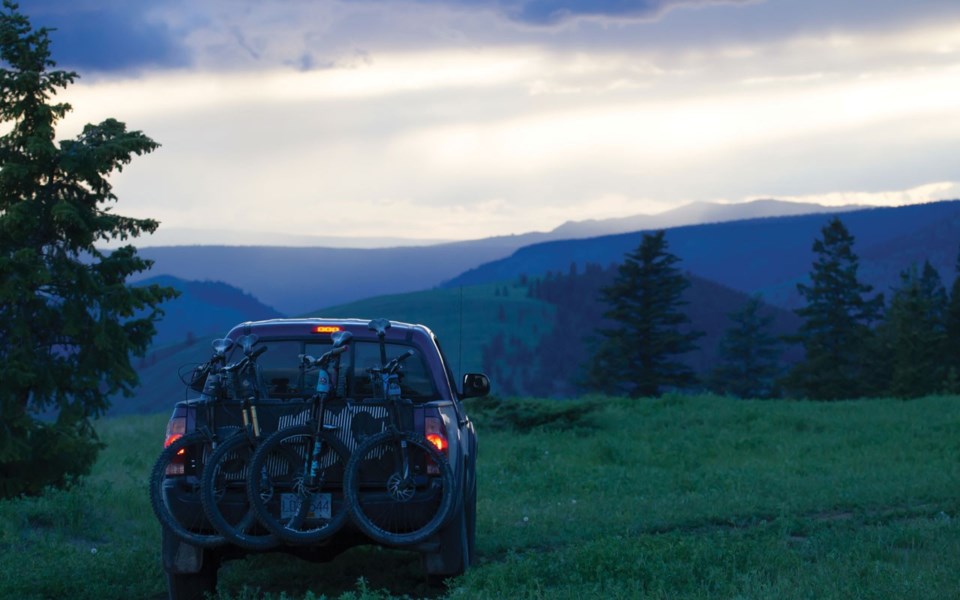Many, many moons ago when I was a youth in the backseat of my grandparents' car on the way out to the family farm, I noticed what seemed like a peculiar habit. Any car or pedestrian we passed in the opposite direction was met with a subtle wave from my grandmother behind the steering wheel, a lift of a finger or two to acknowledge the other party.
"Do you know that guy, Nan?" I inquired of my grandmother as she cruised by another vehicle on the familiar road she'd driven for a couple of generations. My elder brother, ever quick to point out my absence of knowledge (as elder brothers do), replied on her behalf.
"That's what they do in the country, Vince," he said. "There's not as many people, so everyone waves to everyone else."
For a kid who'd already had a number of negative experiences with motorists while riding my bike around the suburbs, it took a bit to wrap my head around. My mother, who grew up on that dairy farm, would later explain that there's an innate friendliness in rural communities that we don't necessarily have in the cities and suburbs. She used the example that if our car broke down on that rural road and we needed help, wouldn't you want that farmer passing by in their truck to stop and give us a hand?
The "Farmer's Wave" is a common staple in the rural western world. It takes little-to-no effort to do and is almost always reciprocated in kind. It promotes a feeling of community, an acknowledgement that both parties are out here on a similar job, errand, or adventure. To ignore this tradition in rural communities is not only considered discourteous, but can be construed as ignorant or even antagonistic.
Whistler doesn't really qualify as a rural community. A drive down to Function Junction on Highway 99 can (on occasion) feel like an extension of cross-town commuter traffic in Vancouver. But once the pavement changes to gravel, so should the attitude. And we don't have to go very far to begin travelling on gravel roads, what the Province of British Columbia technically calls "resource roads."
B.C. has over 620,000 kilometres of resource roads. They are a highly valued part of the province's transportation network, essential to economic development of forestry, mining, oil and gas, and agriculture operations. They are also crucial links for rural communities and access routes for recreational opportunities. Most people reading this will fall into that last category. Resource roads are how we access ski touring, snowmobiling, hiking, mountain biking, paddling and pretty much every other activity that makes use of B.C.'s vast backcountry. Why, then, is the farmer's wave or similar trailside greeting still sometimes met with a silence or similarly blank response?
Not all cultures are ingrained with the rural-road ritual, I get that. In other countries, a wave on the road or quick hello and smile when passing each other on the trail might just seem weird or eye-rollingly cheesy. In B.C., some folks are just lazy or just don't think about it, keeping their eyes on the road instead of on the hands of the driver travelling the opposite direction. Yet for such a small and simple gesture, it's not too much to ask of each other, especially if we choose to stay in this beautiful province for a while.
On one of my many trips over the years to Vancouver Island and the Sunshine Coast, I've noticed the rural-road ritual is alive and well amongst the locals. Visitors can be a bit slower on the uptake, but most get it after a day or two. Returning back to the mainland and exiting the ferry at Horseshoe Bay can be jarring experience when cars start jostling for their lane in order to get home sooner than everyone else. Such behaviour is telling, and not what we need or want on our rural roads.
Now, more than ever, we need to be civil to one another. That means a subtle wave on the Forest Service Road whether the oncoming vehicle is a lifted F-350, an Evo car-share rental or an Audi SUV. It means similarly greeting your neighbours on your cul-de-sac street. It means responding to kindness with kindness on the trail, no matter who you are.
A little bit of rural-road ritual will go a long way.
Vince Shuley will wave the next time he sees you on a gravel road. For questions, comments or suggestions for The Outsider, email [email protected] or Instagram @whis_vince.




